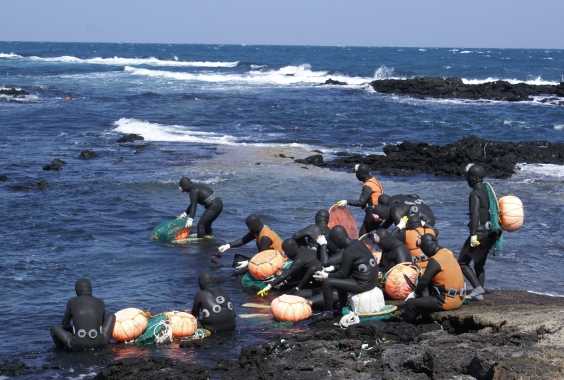
The world has long been fascinated by the Haenyeo—the legendary female divers of Jeju Island, Korea—who dive into frigid waters without oxygen tanks to harvest seafood. Now, groundbreaking research from Cell Reports and Nature sheds light on the genetic and physiological adaptations that empower these women to thrive in extreme conditions.
Scientific Breakthrough: Haenyeo DNA Holds Cold-Tolerance Secrets
A study published in Cell Reports in May 2025 reveals that Haenyeo divers carry unique genetic variants linked to:
- Bradycardia: Slower resting heart rate, conserving oxygen during dives
- Peripheral vasoconstriction: Better circulation control under cold stress
- Enhanced hypoxia resistance: Tolerance for low-oxygen environments
These variants suggest a long-term evolutionary adaptation to life in the sea.
Training and Lifestyle: Resilience Built Over Generations
Genetics alone don’t tell the whole story. As the Nature article emphasizes, the Haenyeo’s daily training and cultural practices have deeply shaped their physiology:
- They dive up to 20 meters deep without scuba gear
- They maintain long breath-hold times with remarkable control
- They show strong resilience to cold-induced pain and stress
This combination of culture and biology illustrates a unique example of human biocultural evolution.
Cultural Heritage Meets Modern Science
The Haenyeo tradition—recognized by UNESCO as Intangible Cultural Heritage—offers not only insights into survival in extreme environments, but also a rich story of female empowerment, resilience, and community in Korea.
Science is now catching up to what tradition has known for centuries: Haenyeo are living proof of the human body’s adaptability, shaped by necessity, culture, and perhaps even natural selection.